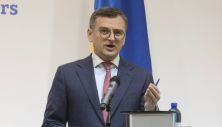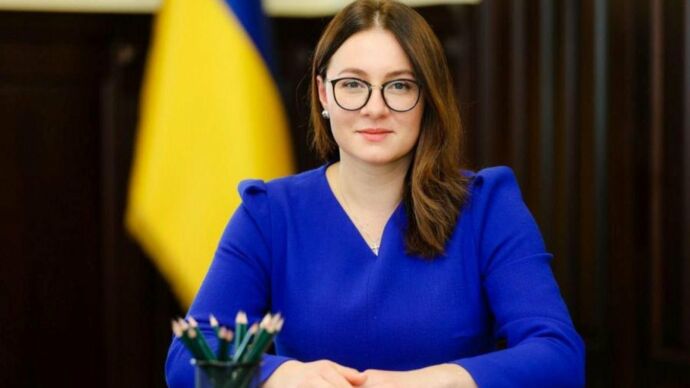A mid the war, the EU has become Ukraine’s main trading partner, accounting for more than 55% of mutual trade. Now it is important for us to maintain the pace of trade development and extend autonomous trade measures in the form of complete elimination of duties, as well as to extend agreements on road transport permits. This was emphasized by Yuliia Svyrydenko, First Deputy Prime Minister and Minister of Economy of Ukraine, at the EU-Ukraine Summit.
“Openness of trade between Ukraine and the European Union and integration into the EU internal market is a key to preserving the Ukrainian economy in the face of war and rapid economic recovery.
The economic front of our fight against aggression is based on close cooperation between Ukrainian and European businesses. Sustaining economic activity now, accelerating economic recovery and returning millions of Ukrainians who have found temporary protection in the EU to Ukraine are fundamental elements of our victory. Therefore, the development of trade between Ukraine and the EU is one of the key factors of victory on the economic front,” said Yuliia Svyrydenko.
Based on statistical data, before Russia’s large-scale invasion, the European Union’s share in Ukraine’s external trade was 41%, with more than 10,000 Ukrainian companies exporting their products to the EU. Ukrainian businesses knew how to trade and cooperate with European businesses. Additional measures taken during the war, such as the abolition of all duties, the conclusion of an agreement on abolition of transport permits, and joining the common transit system, helped Ukraine mitigate the shock of the war and further connect the Ukrainian economy with the EU.
This concerns not only exports from Ukraine to the European Union but also imports of vital goods – we receive 90% of our fuel and 70% of our medicines from the EU. By the end of 2022, the EU’s share in Ukraine’s foreign trade turnover reached 55.5%.
“Now it is important for us to maintain the pace of trade development and extend the autonomous trade measures in the form of a complete abolition of duties, as well as to extend agreements on road transport permits. In our joint Priority Action Plan for strengthening the implementation of the free trade agreement for 2023-2024, we prioritize trade integration projects.
Conclusion of an Agreement on the Access of Ukrainian Goods to the EU Market (ACAA) should ensure free movement of goods in the EU internal market. This week’s Trade Committee decision on roaming creates a clear legal framework for Ukraine’s integration into the relevant EU internal market. It is about turning the temporary agreement, which was extended for 6 months, into a permanent mechanism,” explained Yuliia Svyrydenko.
According to the First Deputy Prime Minister, the Government is committed to ensuring Ukraine’s full integration into the EU customs area, energy market, food safety control system, etc.
“The EU’s analytical report on fulfillment of accession requirements that was released yesterday shows a clear pattern: in the priority areas for trade, Ukraine’s level of compliance with EU requirements is higher. This means that trade integration is a driver for faster accession to the EU. This is another reason to realize the full potential of the DCFTA,” said Yuliia Svyrydenko.
Amidst the war, there is another important element to support economic activity – insurance of war risks with regard to supply of goods and investments. The government is actively working with foreign national institutions, such as German Euler Hermes (now Allianz Trade), Austrian OeKB, Czech EGAP, and Italian SACE, to enable active war risk insurance and increase credit limits for Ukraine.
“Given that this issue is of pan-European interest, I am asking you to help us in our dialog with these institutions. It is important for private business to play a key role in rebuilding the Ukrainian economy. Indeed, commercial, industrial and financial ties are the most reliable foundation for integration,” added Yuliia Svyrydenko.
Also, Ukraine’s accession to the EU should speed up the return home of those Ukrainians who have left for Europe.
“The European Union currently hosts 4.6 million Ukrainians. Many of them work and actively spend money in the EU countries, thus helping the economies of the EU member states as much as they can. We want these people to return as soon as possible to a peaceful Ukraine that is integrated into the European Union. In such a way that the freedoms of the EU internal market allow them to either work in Ukraine at companies that supply products to the EU or to work legally in the EU. By their own choice and with dignity, improving their well-being and the well-being of our common economy,” summarized Yuliia Svyrydenko.













